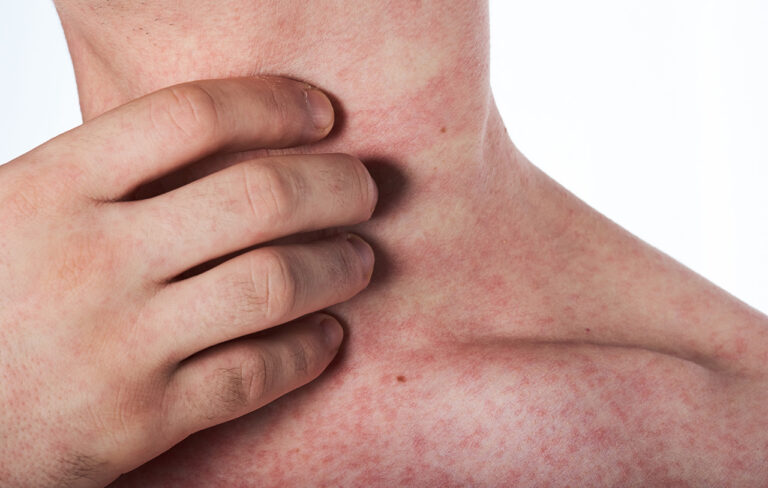I have an itchy neck. Is there anything wrong with my neck? Is it a rash? Learn more about what causes a rash on the neck.
What is a neck rash – meaning
What does a neck rash look like? While there is no specific description of an eruption on the neck, several changes in the skin in terms of appearance or texture.
- In terms of color, your areas around the neck may turn red or white or pink. Sometimes there is discoloration or permanent change in skin texture.
- A rash on the neck may be bumpy, small or tiny spots or flat
- A rash can also make your skin look scaly, cracked, papular
Where does neck rashes occur? At the back of the neck, on the sides or around Adam’s apple area in men. Furthermore, if you a rash on the neck and chest or neck and the back, rashes can spread in a few hours after an eruption in a small area.
In more cases of a skin rash, the symptoms signify the rash itself. Symptoms vary according to the specific triggers or underlying cause. Presentation of the symptoms can also vary slightly between light-skinned individuals and those with a darker complexion.
NOTE: Rashes on the neck can go with no other notable symptoms.
Let us look at possible reasons or why you have a neck rash.
Neck rash causes
The following is a general discussion on the causes of a neck rash.
Heat rash, miliaria aka “prickly heat”

What is a heat rash? If sweat gets trapped causing a blockage of sweat glands you will get a heat rash. Other contributing factors of prickly rash eruption include hot and humid weather, clothing that keep in heat plus too much sweating experienced during the summer.
This rash is common in young children or babies. Adults too can get a heat rash. Areas affected include the neck base, between or underneath breasts and armpits.
The formation of small blister-like bumps is more likely. Irritation is sometimes experienced and in that case, itching is accompanied. Fever is also reported.
Heat rash does not really need medication as it can disappear gradually on its own more so in kids growing up.
How to heal heat rash
Adults and babies with heat rash can do these simple remedies to heal the rash easily.
- Stop heavy clothing especially during the summer.
- Take your baby to a cool place to let them recover gradually
- Individuals experiencing a fever or itching can see a doctor.
Allergic contact dermatitis
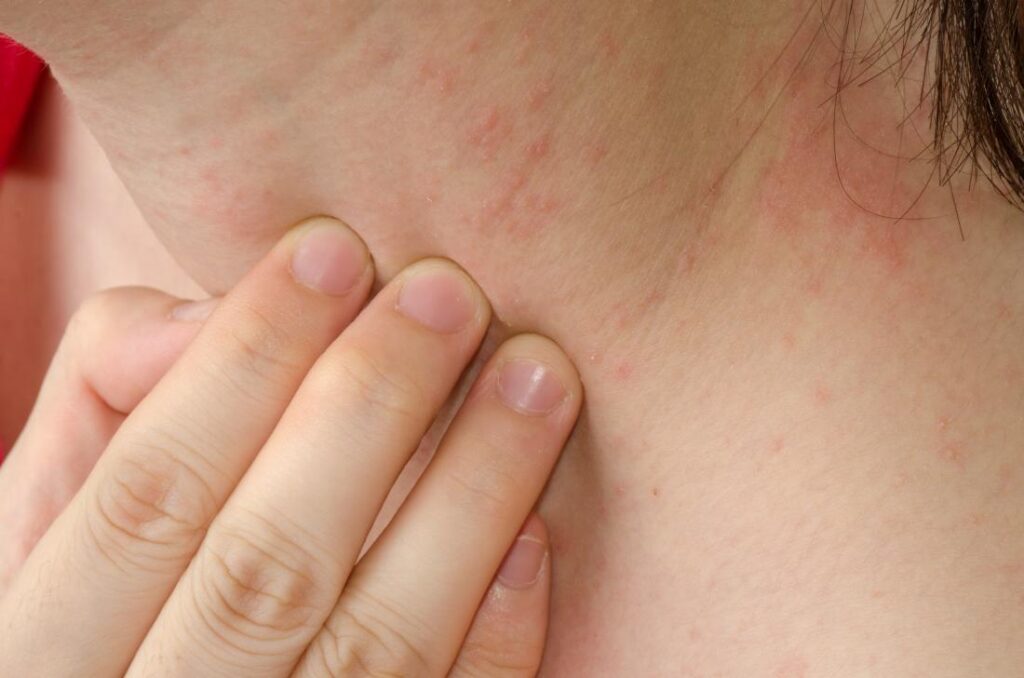
Allergic contact dermatitis is a hypersensitivity reaction occurring when or after a skin allergen lands on any part of the body.
There are different ways in which this may occur. The common cause is by direct contact with jewelry items like neck chains coated with Nickel, rubber chemicals, fragrances in body lotions (Neosporin), ointments or chemical compounds like Chromates and cosmetics including soaps and hair dyes.
These reactions could also be through indirect contact as in touching your neck after using rubber hand gloves made from chemicals. Food allergy and drug reaction can also lead to a rash on the neck.
Allergic contact dermatitis as a skin rash can occur anywhere on the skin. A neck rash symptomatic of allergic contact dermatitis can cause:
- Pink to red skin around the neck. The areas affected may look slightly raised
- Thickening of the areas affected or formation of plaques
- Sometimes the skin on the back of neck can form blisters
Some severe allergic reactions like anaphylaxis and toxic epidermal necrolysis are deadly or life-threatening.
NOTE: Allergic reactions are immune body response as not everyone is affected by that very same allergen.
Treatment
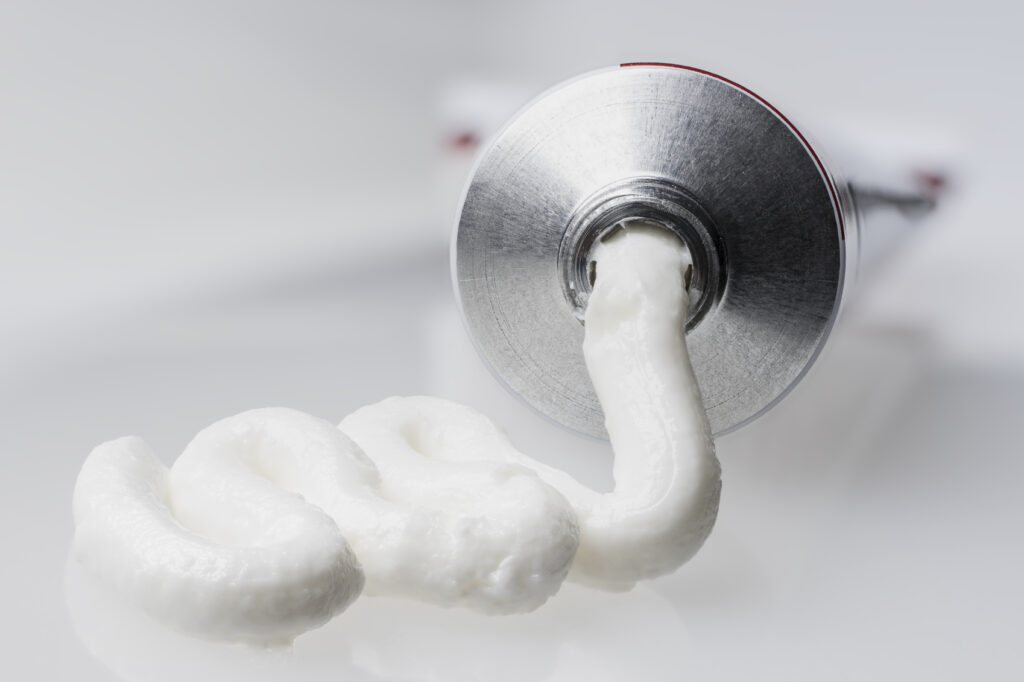
Physicians or dermatologists majorly insist on staying away from the allergens or stop applying the body lotions and the use of neck chains.
Most treatments prescribed aim at controlling the symptomatic effects of itching, inflammation or pain. Topical creams for applying are the most common forms of treatment offered by clinicians. These include topical steroids and sometimes antibiotics in case of certain severe cases of skin conditions.
Atopic dermatitis or Eczema
Going on with causes of a rash on neck, atopic dermatitis is another culprit. Unlike allergic contact dermatitis, eczema is a skin disorder characterized by itching and dry skin. Usually, this kind of rash becomes a problem as itching becomes intense with the increasing need to scratch the affected area.
In addition, a thick plaque on the skin that looks scaly with small red to pink papules on the back of the neck is other symptoms. These are seen when eczema persists into adulthood. Adults will complain about irritation especially areas around the knee.
No one really knows the exact cause or reason why atopic dermatitis occurs. Even though, there are certain conditions (most external) that contribute to this skin disorder. These include humidity and heat, use of detergents or harsh soaps, staying in smoky places and wearing abrasive clothing. Sometimes stress can be a trigger factor. In fact, people call it a stress rash when other factors are excluded.
Major areas of the body affected include the face, neck, front fold of elbow and behind knees. Infants are at risk.
Treatment of eczema neck rash
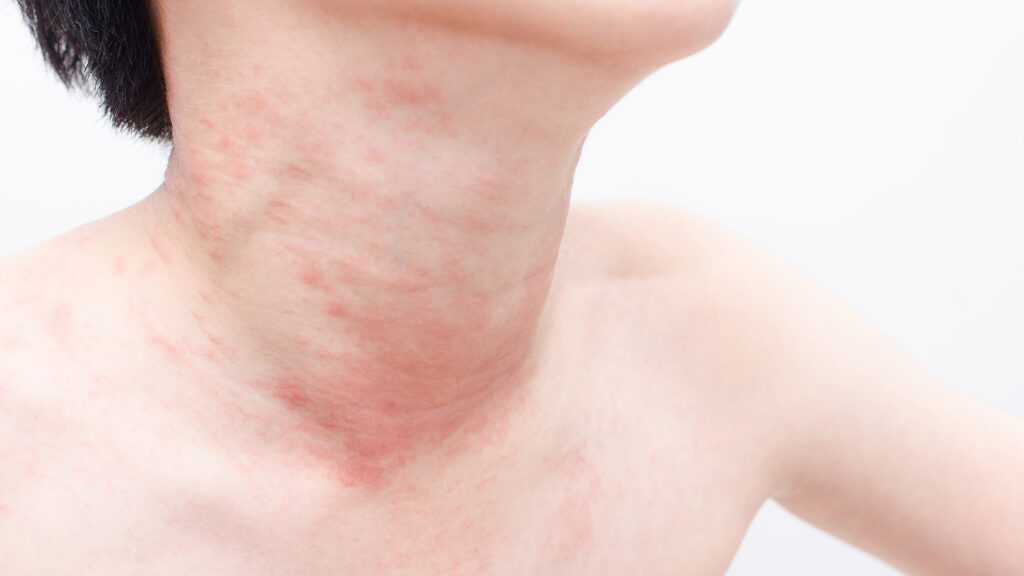
There is no specific forms of treatment for this disorder. However, good self-skin care practices are premier when you have eczema. These comprise the following.
1. Deep moisturizing
Moisturizers help keep your skin hydrated hence preventing the skin from cracking. Dermatologists recommend eczema individuals apply non-fragrance moisturizer products such as Aquaphor® ointment, Eucerin® cream, CeraVe™ cream, and Cetaphil®. Pure petroleum jelly is also good for mild symptoms.
2. Keep off aggravators
To avoid further irritation stay away from sunlight and smoke.
3. Do a gentle washing
If you have to keep on doing the washing, go for gentle or fragrance-free detergents. (DO not use soaps or do excessive washing if you already have eczema on hands).
4. Keep up your living room conditions
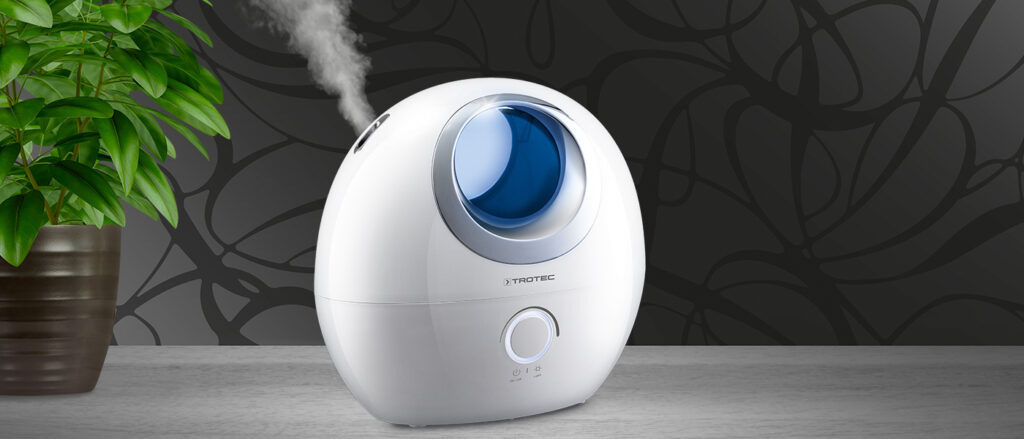
Use a humidifier when air goes dry. You may also use water-filled bowls at room temperature.
Besides the outlined self-care guidelines, seek medication or go for treatment therapies for severe eczema.
Irritant contact dermatitis
Irritant contact dermatitis is an inflammatory rash caused by direct chemical injury to the skin. Burning or stinging sensations are significant symptoms that victims experience. The symptoms come quicker than the reactions due to allergic contact dermatitis.
Excessive water exposure, acids and alkalis can all result in skin irritations. Unlike allergic contact dermatitis, the irritants causing inflammation is an injury to the skin.
Treatments
To get rid of inflammation steroid solutions are normally prescribed. In case of a chronic irritation after which lesions develop, skin protection is a must.
Seek medication from a physician when the irritation grows or becomes wild.
Psoriasis on neck
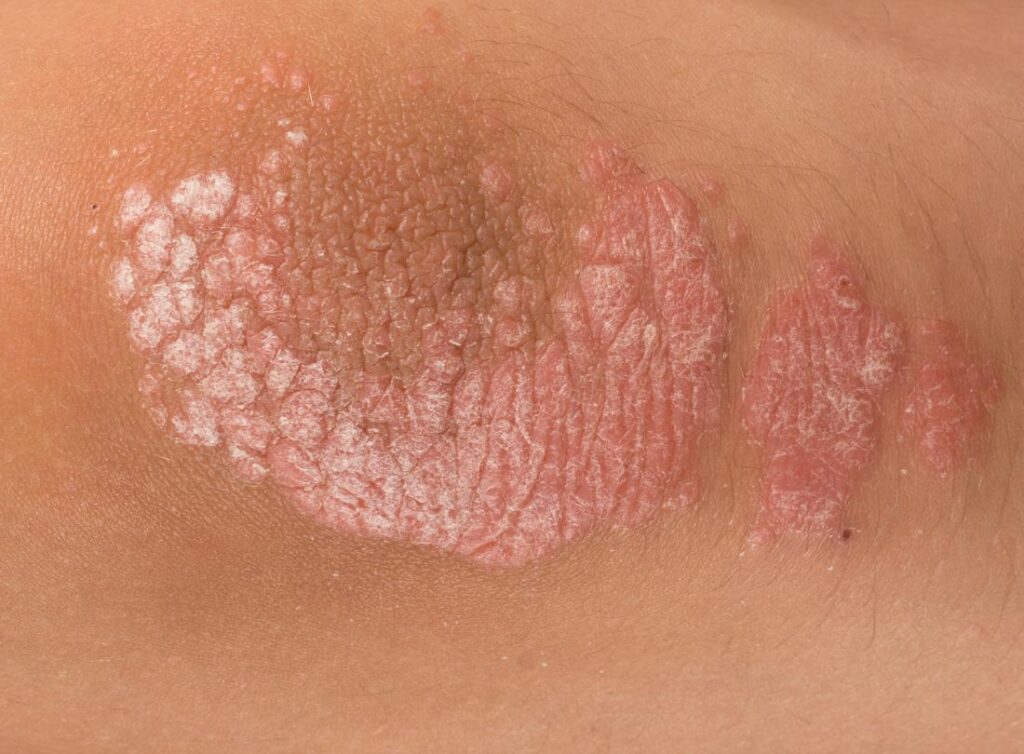
Psoriasis is a non-contagious chronic skin condition that never goes away completely. According to Dr. Chris Iliades, when you are suffering from psoriasis, the immune system sends signals to your skin that speed up the production of skin cells.
There is no exact cause but several trigger causes include severe sunburn, stress, wrong use of corticosteroids and excessive alcohol consumption or alcoholism.
Most types of psoriasis result in an inflammatory rash that causes itching. Pain is common. Certain types of psoriasis require immediate medical care when there is a flare-up of symptoms.
Symptoms of psoriasis on neck
- Red raised patches on the neck with a silvery or grey scaly appearance
- Severe itching in case of a flare-up
- Pain caused by lesions especially if there are prominent skin folds around the neck
How is neck psoriasis treated?
There are several therapies that doctors put in place to address the problem. Most treatment options aim at restoring skin texture and reduce the itching or kill the pain. In many cases, dangerous types like erythrodermic psoriasis involve systemic treatments after dermatological evaluation.
Lichen simplex chronicus (LSC)
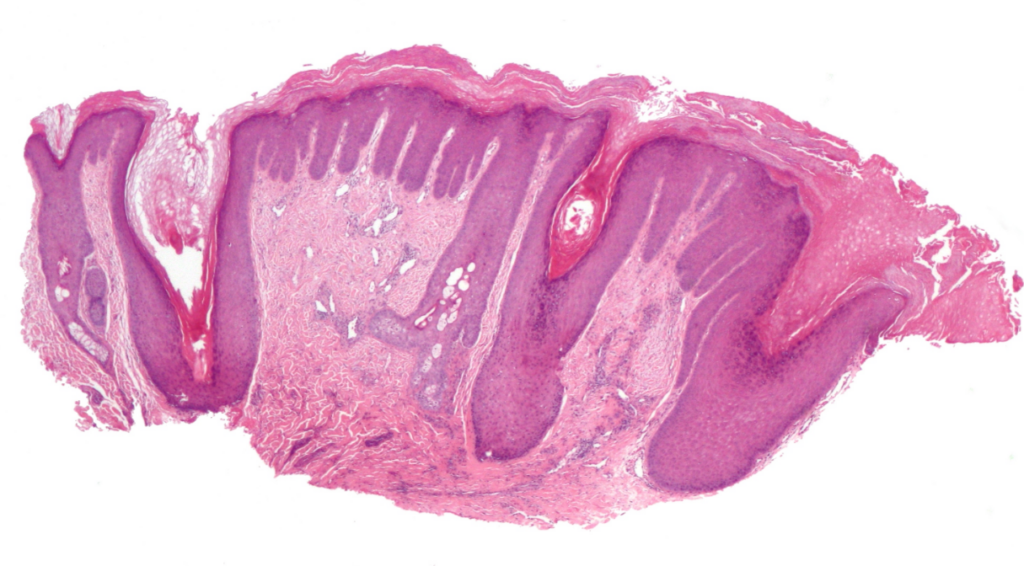
Another cause of a rash on the back of the neck is the lichen simplex chronicus. According to Skintight, it is an itchy skin condition causing thickened skin at the areas of skin injured by repeated scratching and rubbing.
It almost always begins with itchy skin and thickening occurs later on. Itching may be occasional and sometimes increase while resting or during the night.
What are the causes of LSC?
As the name suggests, LSC sounds like an infection but is not primary. The common causes include skin conditions (eczema, dry skin) and bites.
Stress may also lead to the condition.
Treatment
Home remedies for this condition may help. These are mostly moisturizers or symptom relievers like oatmeal washing, aloe Vera and pure oils such as extra virgin oil or vitamin E oil.
Medical treatments include numbing injections, anti-itch medicines such as hydrocortisone creams prescribed by your doctor. Antibiotic (topical creams) medicines to prevent infection are also given in accordance with your doctor’s evaluation of symptoms you complain about.
Other causes of neck rashes
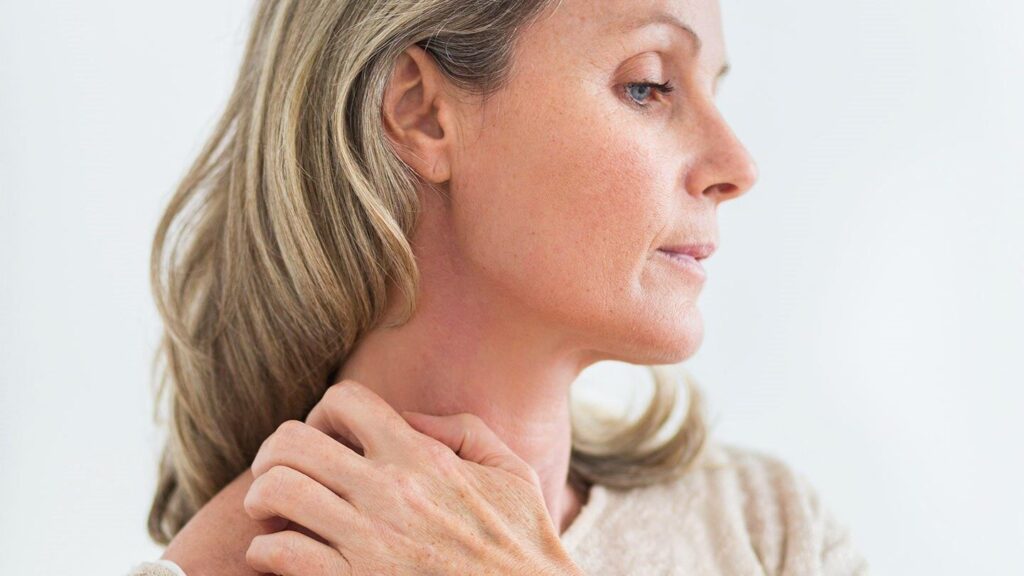
There are many other causes on a rash on the neck. Namely
- Viral infections such as chickenpox (shingles) and measles. Most viral rashes create a widespread itchy rash.
- Scarlet fever
- Hives or urticaria
- Dermatomyositis that causes a red or violet rash on neck, arms, hips
- Certain insects and bites from parasites.
- Acne
Diagnosis
Skin conditions like eczema require a close examination by a dermatologist. If not diagnosed identifying and treating such conditions would be a major challenge. Common procedures involved during diagnosis are physical examination or under a microscope.
DO not be afraid or become worried when asked for a blood test, scrapping from affected areas or a biopsy (some dermatologists may ask). Please answer all questions asked to the best of your memory or knowledge.
The last resort would be a review of medical history which comprises patient’s treatment history records.
Itchy rash on neck
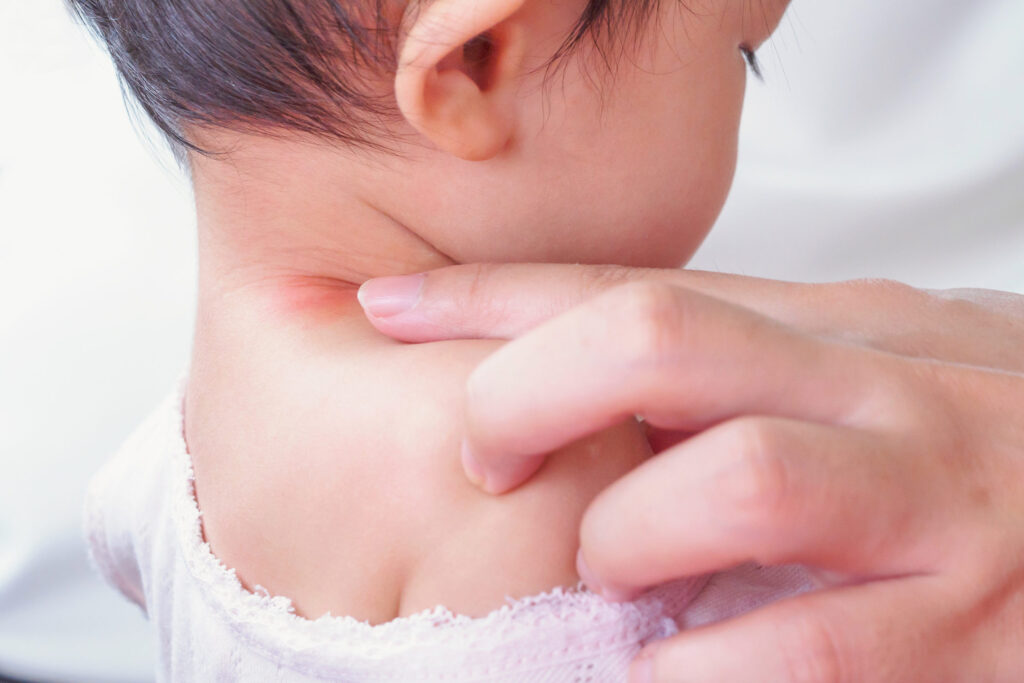
As seen above, itching can accompany rashes. Itching or itchy neck alone can be caused by many things. However, in the case of rashes, itching could be symptomatic of rashes caused by certain skin conditions, viral infections or fungal infections. See the symptoms above.
When you should consult a physician
If your neck rash cannot heal even after you have tried to do something about the triggers, feel free and visit your doctor. Conditions like psoriasis can lead to chronic symptoms or keep on recurring. At least allergy contact dermatitis-prone individuals may require to go for consultation from time to time.
Advice for parenting: Pregnant women who develop a skin rash should seek medical advice. More importantly, pregnant women should carefully observe all self-care and avoid making contact with anyone suspected of a viral rash (rubella for example).

